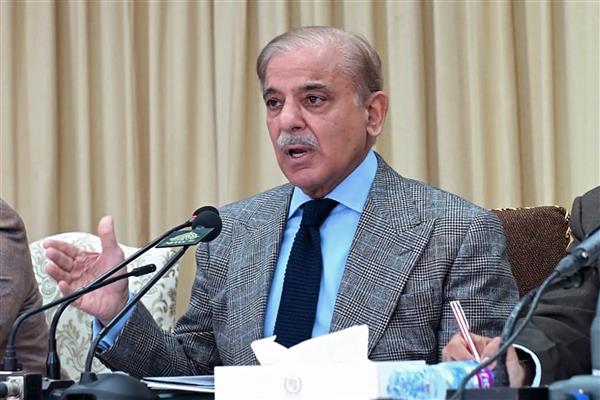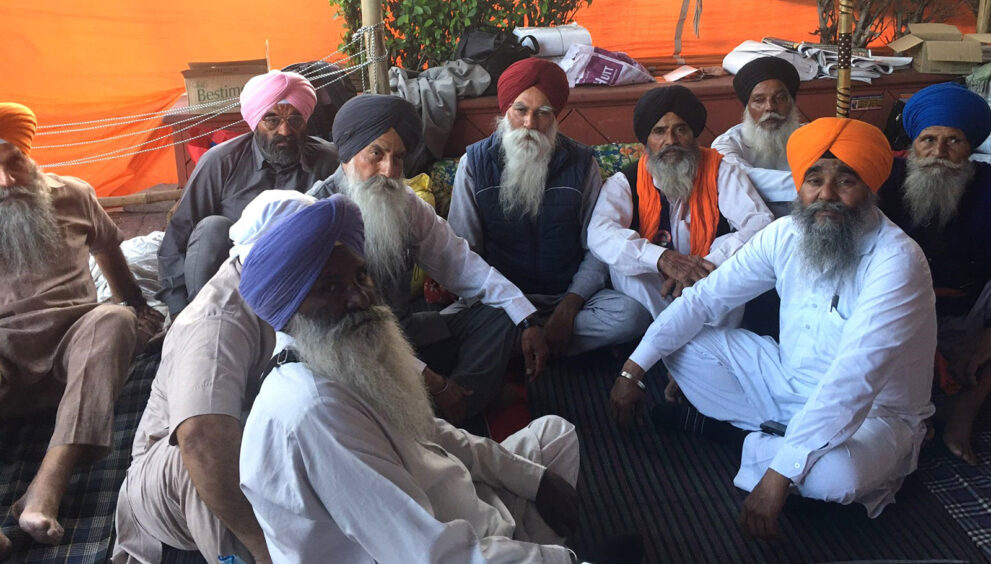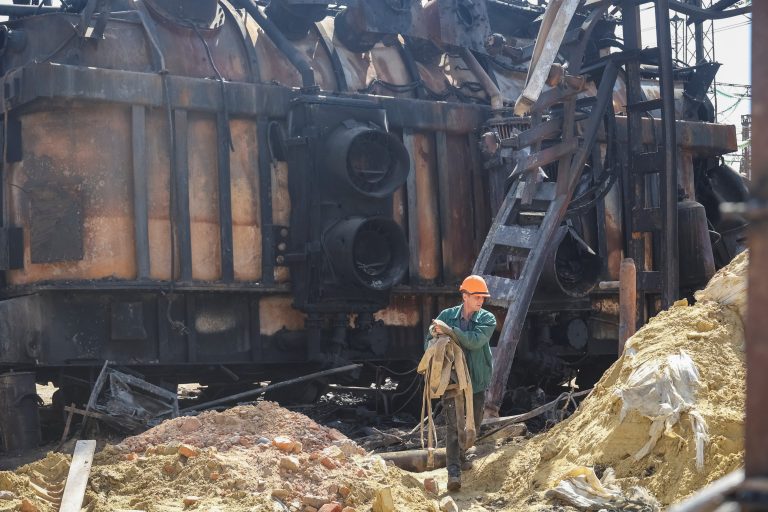PTI
Islamabad, February 24
Prime Minister Shehbaz Sharif on Friday said that if the country has to rise like an “economic tiger”, lawmakers must rise above personal likes and dislikes, as he chaired a high-level National Apex Committee meeting to formulate a strategy to deal with the rising incidents of terror attacks.
The meeting was attended by a raft of high-profile members from the political and military establishment.
Prime Minister Sharif criticised Imran Khan’s Pakistan Tehreek-e-Insaf (PTI) party for skipping an apex committee meeting held last month.
“After the Peshawar incident, I invited all political stakeholders… but they [PTI] did not consider it appropriate to participate in the huddle and they are still trying to resolve matters on the streets,” he said.
On January 30, a Taliban suicide bomber blew himself up during the afternoon prayers in a mosque in Peshawar, killing 101 people and injuring more than 200 others.
The suicide bomber disguised himself in a police uniform to sneak into the high-security zone and was riding a motorcycle with a helmet and mask on, police said.
“For the sake of prosperity, we must sit down and resolve the matter amicably but unfortunately one segment is still trying to sabotage the matters, which is condemnable,” Sharif said.
“If we want to make Pakistan an economic tiger then we must rise above personal likes and dislikes,” he added.
Speaking on the precarious security situation in the country, Prime Minister Sharif said NACTA has become a “dormant institution,” and the time was ripe to replace it with the National Action Plan (NAP).
The NAP was devised by the then governors of Pakistan Muslim League-Nawaz (PML-N) following the heinous Army Public School attack in Peshawar in 2014, in which over 130 students were killed.
The attack was orchestrated by Tehreek-e-Taliban Pakistan (TTP).
Friday’s meeting comes after Defence Minister Khawaja Asif and the Director General of the country’s spy agency Inter-Services Intelligence (ISI) Lt. General Nadeem Anjum met the top brass of the Afghanistan Taliban regime in Kabul to discuss the rise in terror attacks in Pakistan masterminded by the TTP.
Pakistan has been hit by a wave of terrorism, mostly in the country’s Khyber Pakhtunkhwa province, but also in Balochistan, the Punjab town of Mianwali, which borders the restive Khyber Pakhtunkhwa province and also in the Sindh province.
During the Apex Committee meeting held last month, Pakistan’s civil and military leadership decided to seek Afghan Taliban chief Haibuttallah Akhundzada’s intervention to control the TTP.
In November last year, the TTP called off an indefinite ceasefire agreed with the government in June 2022 and ordered its militants to carry out attacks on the security forces.
Pakistan hoped that the Afghan Taliban after coming to power would stop the use of their soil against Pakistan by expelling the TTP operatives but they have apparently refused to do so at the cost of straining ties with Islamabad.
The TTP, set up as an umbrella group of several militant outfits in 2007, called off a ceasefire with the federal government and ordered its militants to stage terrorist attacks across the country.
The group, which is believed to be close to Al-Qaeda, has been blamed for several deadly attacks across Pakistan, including an attack on army headquarters in 2009, assaults on military bases, and the 2008 bombing of the Marriott Hotel in Islamabad.
#Imran Khan
#Pakistan
#Shehbaz Sharif










